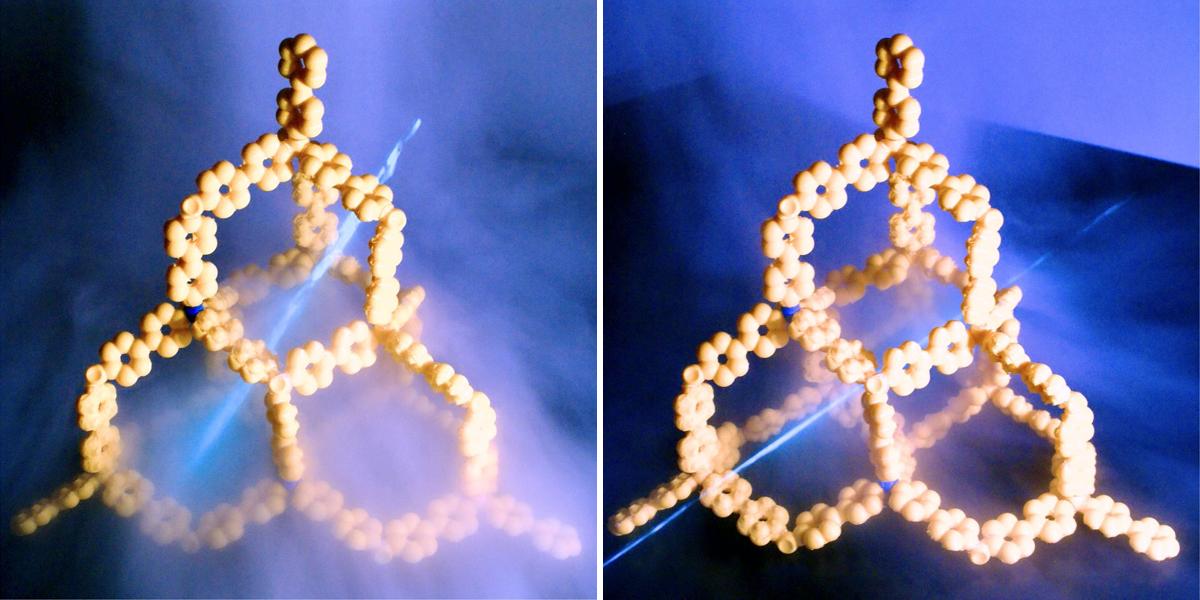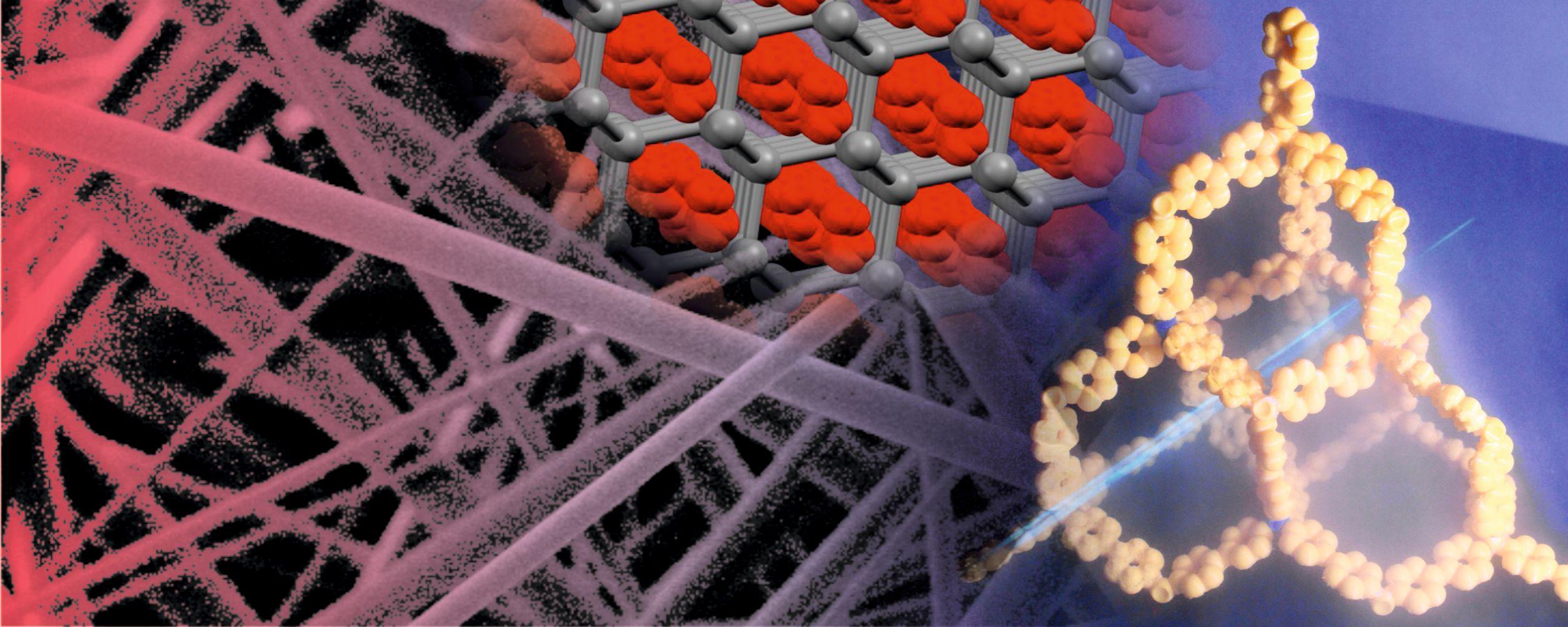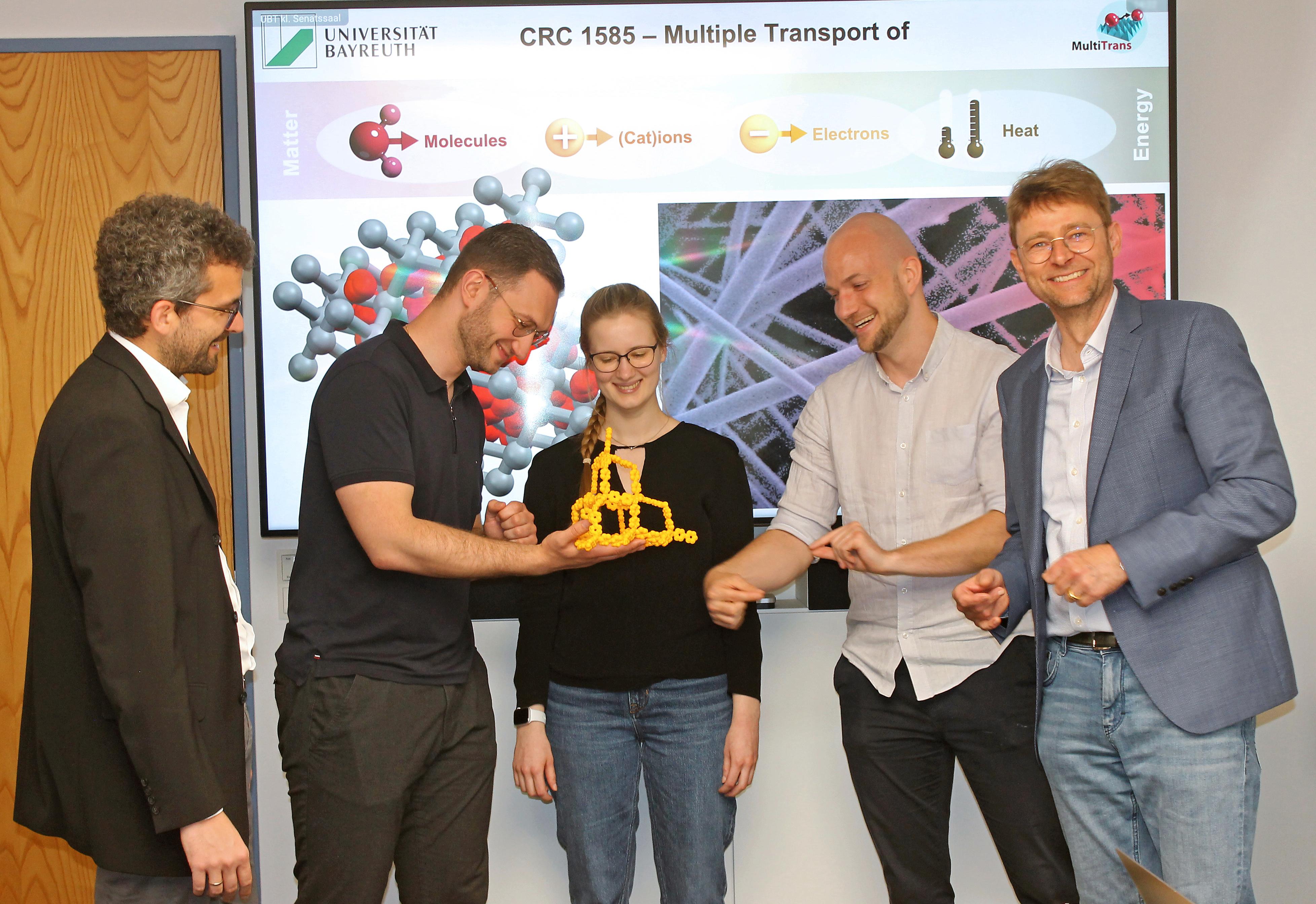New CRC at the University of Bayreuth will investigate nanostructured materials for the energy industry of the future
University of Bayreuth, Press release No. 066/2023 - 19 May 2023
The German Research Foundation (DFG) is funding a new Collaborative Research Centre (CRC) at the University of Bayreuth. The interdisciplinary research of nanostructured functional materials is expected to revolutionise the performance of batteries, solar cells, fuel cells and photocatalysts, thereby opening new perspectives for a sustainable energy economy. The starting point for material-based innovations is a holistic view of the transport of electrons, ions, molecules and heat, and their interactions in the materials. The new CRC 1585 "MultiTrans" will receive a total of around 11 million euros from the DFG over the next four years.
As Science Minister Markus Blume emphasised: "Milestone for research into sustainable energy technologies in Bavaria: Congratulations to the University of Bayreuth on the establishment of the DFG Collaborative Research Centre 'MultiTrans'! This is a brilliant success for Bayreuth's material sciences in the top tier of federal and state funding - also thanks to our High-Tech Agenda Bavaria: With it, we are creating the best possible environment for cutting-edge research at the top international level!"
The CRC 1585 "MultiTrans" (an abbreviation for "Structured functional materials for multiple transport in nanoscale confinements") is based on the observation that the structuring of materials on the nanometre scale has a decisive influence on how electrons, ions, molecules and heat travel within them. Initially, the research will focus on these four important carrier types, which flow simultaneously but not necessarily in the same direction. Nanostructuring generates a variety of interactions between the carrier flows, the materials, and the involved interfaces. Such interactions, which have by far not been understood, are the focus of the CRC. The synergistic research within the endeavour that relates the behaviour of electrons, ions, molecules and heat is expected to lead to a vital and fundamental understanding of transport in tailored environments. The latest scientific methods, e.g. from the field of artificial intelligence, will support these analyses. The long-term vision of the CRC is to be able to control all transport streams in nanostructured materials in a targeted and coordinated manner.
"The findings emerging from the CRC can and should be a springboard for far-reaching improvements to existing energy technologies. Above all, however, they have the potential to advance the development of completely new materials for a sustainable energy economy. With this joint goal in mind, numerous research teams on the Bayreuth campus will be working together intensively, building bridges from basic research to innovative application perspectives," explains Prof. Dr. Jürgen Senker, spokesperson of the CRC and Chair of Inorganic Chemistry III at the University of Bayreuth.
"The long-standing interdisciplinary collaboration between scientists from the fields of physics, chemistry and materials science on the Bayreuth campus, which has already proven its worth in our CRC on microplastics research, is given new strength by the DFG’s funding decision. I am very pleased that the University of Bayreuth will now contribute to solving central societal and economic challenges in yet another research field thanks to its CRC 'MultiTrans'. Materials research is at the heart of energy research. A range of sustainable technologies including batteries, solar cells, and hydrogen-powered fuel cells will be able to benefit equally from the holistic approach that the CRC is taking with its research programme," says Prof. Dr. Stefan Leible, President of the University of Bayreuth.
The CRC "MultiTrans" pools expertise in natural sciences and engineering spanning nine research disciplines at the University of Bayreuth. Research partners at the University of Augsburg, the Technical University of Darmstadt and the University of Ulm complement this rich spectrum of knowledge. The CRC is establishing a "Transport Academy" to strengthen the synergies between the researchers. It will guide and support the coordinated work within the multidisciplinary research groups. In addition, it will analyse and evaluate new research findings in relation to the overarching research goals of the CRC. A special focus is on fostering scientific talents in cooperation with the University of Bayreuth’s WiN Academy, which offers a broad range of services to support scholars at all individual career stages from doctoral studies to junior professorships.
At the core of the CRC's support for Early Career Researchers is a new Research Training Group on the topic of "Transport in Structured Materials": It will strengthen scientific excellence and subject-related soft skills, but also the personal development of doctoral students. It is integrated into the Bayreuth Graduate School for Mathematics and Natural Sciences (BayNAT) and thus is part of the University of Bayreuth Graduate School.
"We are strongly committed to providing comprehensive support to young, highly motivated researchers from Germany and abroad during their doctoral studies and afterwards, and to giving them the best possible guidance in designing and implementing their own projects. On the close-knit campus of the University of Bayreuth, they will be members of an multidisciplinary network that maintains close contact and collaborations with renowned international research partners. In addition, they will have independent access to an outstanding research infrastructure in our laboratories, which is unique for German universities, ranging from NMR spectroscopy to the latest techniques for characterising thermal transport to a research centre for scientific computing," says Prof. Dr. Markus Retsch, deputy spokesperson of the CRC and Chair of Physical Chemistry I at the University of Bayreuth.
Master’s students nearing graduation, doctoral students and postdocs from Germany and abroad can request information on specific research topics and express their interest in getting involved in the CRC "MultiTrans". For this purpose, the CRC has set up the e-mail contact SFB1585.MultiTrans@uni-bayreuth.de
Images (see above) for download
- Prof. Dr. Jürgen Senker (right) and Prof. Dr. Markus Retsch (left) (Photo: UBT)
- Molecules and ions can move along distinct pathways within porous covalent-organic networks and other porous materials ... (Image: UBT)
- Porosities on multiple length scales are of paramount importance for the new CRC (Image: UBT)
A research team of the new SFB, which lays emphasis on promoting young scientists ... (Photo: UBT)
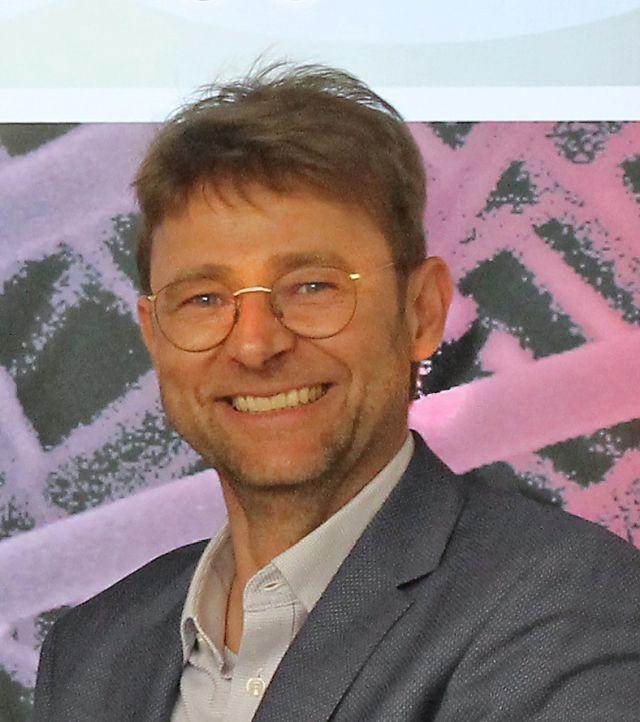
Prof. Dr. Jürgen Senker
Spokesperson of the CRC "MultiTrans“
Chair of Inorganic Chemistry III
University of Bayreuth
Phone: +49 (0)921 / 55-2532
E-mMail: juergen.senker@uni-bayreuth.de
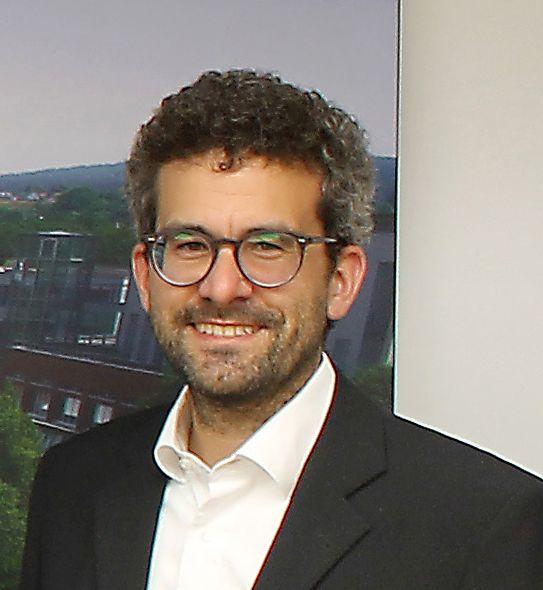
Prof. Dr. Markus Retsch
Deputy spokesperson of the CRC "MultiTrans“
Chair of Physical Chemistry I
University of Bayreuth
Phone: +49 (0)921 / 55-3920
E-mail: markus.retsch@uni-bayreuth.de
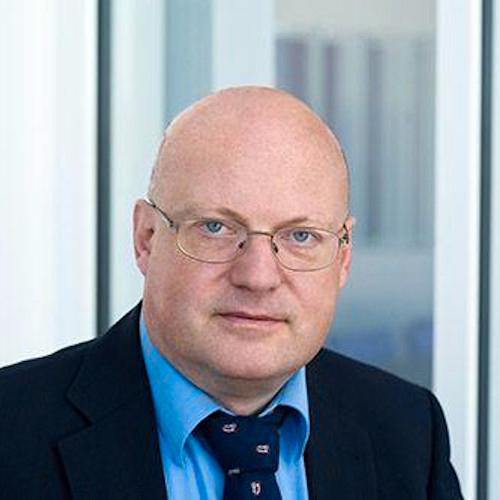
Christian Wißler
Deputy Press & PR Manager, Research Communication
University of Bayreuth
Phone: +49 (0)921 / 55-5356
E-mail: christian.wissler@uni-bayreuth.de

